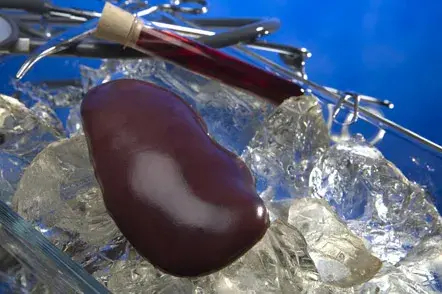Kidney transplantation is an effective treatment for people with kidney disease, especially end-stage renal disease (ESRD) that occurs when the kidneys do not function any more at a level that is necessary for day-to-day activities. This treatment involves removing a kidney from another person (living relative of the patient or from an unrelated person) and surgically implanting it to the ESRD patient. Kidney transplantation has to be reported on medical codes using the right diagnosis and procedural codes. Your documentation must substantiate medical necessity as well.
There are certain factors /conditions that payers specifically consider not medically necessary for a kidney transplant, including the following:
- Known history or current malignancy up to and including metastatic cancer
- Recurrent malignancy with a high incidence of recurrence
- Untreated systemic infection making immunosuppression unsafe (chronic infection)
- Other irreversible end-stage diseases that are not linked to the kidney disease
Physicians need to make sure that the patient’s medical records do not contain reference to any factor/condition that is considered not medically necessary.
Diagnosis Codes
Though covered diagnosis codes may vary according to the payer, the commonly covered codes are as given below. These codes must be assigned accurately for the submission of claims and reimbursement. Our medical coding services ensure accurate and compliant coding that is customized to meet your practice’s unique needs and payer regulations.
ICD-10
- E11.29: Type 2 diabetes mellitus with other diabetic kidney complication
- E10.29: Type 1 diabetes mellitus with other diabetic kidney complication
- E11.65: Type 2 diabetes mellitus with hyperglycemia
- E10.65: Type 1 diabetes mellitus with hyperglycemia
- I12.0: Hypertensive chronic kidney disease with stage 5 chronic kidney disease or end stage renal disease
- N08: Glomerular disorders in diseases classified elsewhere
- N03.3: Chronic nephritic syndrome with diffuse mesangial proliferative glomerulonephritis
- N18.1: Chronic kidney disease, stage 1
- N18.2: Chronic kidney disease, stage 1 (mild)
- N18.3: Chronic kidney disease, stage 1 (moderate)
- N18.4: Chronic kidney disease, stage 4 (severe)
- N18.5: Chronic kidney disease, stage 5
- N18.6: End stage renal disease
- N18.9: Chronic kidney disease, unspecified
- Q61.3: Polycystic kidney, unspecified
- Q61.2: Polycystic kidney, adult type
- Q61.19: Other polycystic kidney, infantile type
- T86.10: Unspecified complication of kidney transplant
- T86.11: Kidney transplant rejection
- T86.12: Kidney transplant failure
Since the ICD-10 codes are more specific, physicians should be very careful to choose the most appropriate code.
Procedure Codes
Depending upon the individual case and the services rendered, procedure coding for kidney transplant may vary. The CPT codes used to report kidney transplant are:
- 00868: Anesthesia for extraperitoneal procedures in lower abdomen, including urinary tract; renal transplant (recipient)
- 01990: Physiological support for harvesting of organ(s) from brain-dead patient
- 50300: Donor nephrectomy (including cold preservation); from cadaver donor, unilateral or bilateral
- 50320: Donor nephrectomy (including cold preservation); open, from living donor
- 50323: Backbench standard preparation of cadaver donor renal allograft prior to transplantation, including dissection and removal of perinephric fat, diaphragmatic and retroperitoneal attachments, excision of adrenal gland, and preparation of ureter(s), renal vein(s), and renal artery(s), ligating branches, as necessary
- 50325: Backbench standard preparation of living donor renal allograft (open or laparoscopic) prior to transplantation, including dissection and removal of perinephric fat and preparation of ureter(s), renal vein(s), and renal artery(s), ligating branches as necessary
- 50327: Backbench reconstruction of cadaver or living donor renal allograft prior to transplantation; venous anastomosis (each vein)
- 50328: Backbench reconstruction of cadaver or living donor renal allograft prior to transplantation, arterial anastomosis (each)
- 50329: Backbench reconstruction of cadaver or living donor renal allograft prior to transplantation, ureteral anastomosis (each)
- 50340: Recipient nephrectomy (separate procedure)
- 50360: Renal allotransplantation; implementation of graft, excluding donor and recipient nephrectomy (without recipient nephrectomy)
- 50365: Renal allotransplantation, implantation of graft; with recipient nephrectomy
- 50370: Removal of transplanted renal allograft
- 50380: Renal autotransplantation, reimplantation of kidney
Facility Reporting
ICD-PCS (Procedure Coding System) codes are used for facility reporting of hospital inpatient procedures in relation to kidney transplant, which include:
ICD-9-PCS
- 00.91: Transplant from live related donor
- 00.92: Transplant from live non-related donor
- 00.93: Transplant from cadaver
- 55.51: Nephroureterectomy
- 55.52: Nephrectomy of remaining kidney
- 55.53: Removal of transplanted or rejected kidney
- 55.54: Bilateral nephrectomy
- 55.61: Renal autotransplantation
- 55.69: Other kidney transplantation
ICD-10-PCS
- 0TY00Z0: Transplantation of right kidney, allogeneic, open approach
- 0TY00Z1: Transplantation of right kidney, syngeneic, open approach
- 0TY00Z2: Transplantation of right kidney, zooplastic, open approach
- 0TY10Z0: Transplantation of left kidney, allogeneic, open approach
- 0TY10Z1: Transplantation of left kidney, syngeneic, open approach
- 0TY10Z2: Transplantation of left kidney, zooplastic, open approach
- 0TB00ZZ: Excision of right kidney, open approach
- 0TB10ZZ: Excision of left kidney, open approach
- 0TT00ZZ: Resection of right kidney, open approach
- 0TT10ZZ: Resection of left kidney, open approach
- 0TT20ZZ: Resection of bilateral kidneys, percutaneous endoscopic approach
According to CPT coding instructions, you should not report 50323 with 60540 (Adrenalectomy, partial or complete, or exploration of adrenal gland with or without biopsy, transabdominal, lumbar or dorsal (separate procedure)) or 60545 (Adrenalectomy, partial or complete, or exploration of adrenal gland with or without biopsy; transabdominal, lumbar or dorsal (separate procedure); with excision of adjacent retroperitoneal tumor). Also, make sure that you append 50 (Bilateral procedure) to 50340 and 50365 when reporting bilateral procedures.




